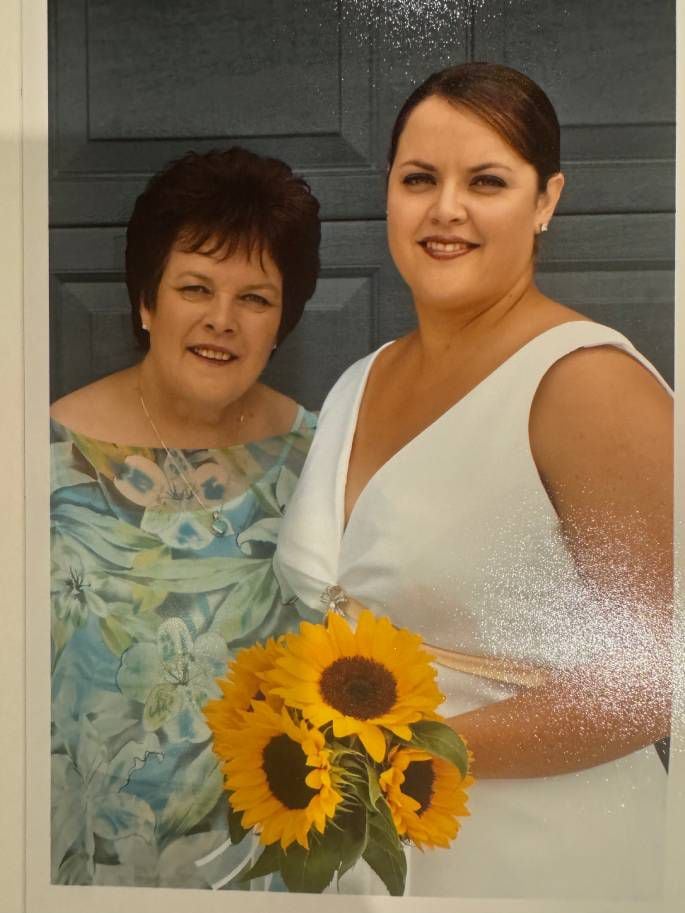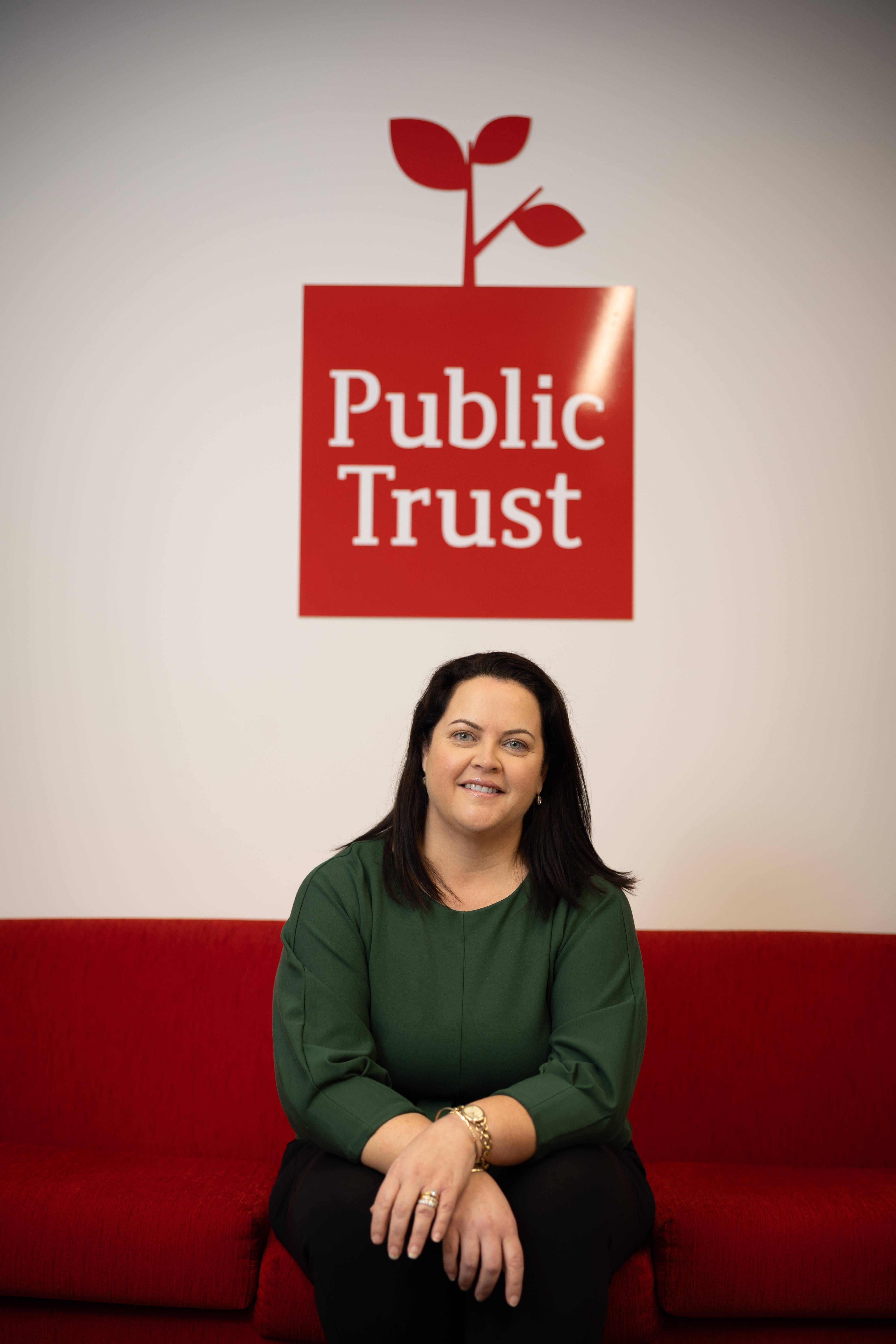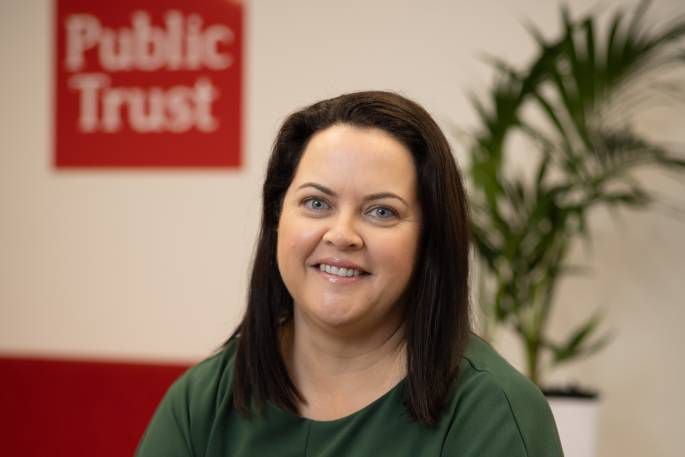Death is a challenging topic, which is why we often use euphemisms like “kick the bucket”, “passed away”, and “pushing up daisies”, says Public Trust following a recent survey on the topic.
The survey found that 57% of New Zealanders were “uncomfortable, fearful, reluctant“ or ”avoid discussing death altogether" versus 24.9% who were “comfortable talking about death directly” and 15.5% who felt it was a natural part of life.
Public Trust expert Angela Jackson said people are reluctant to talk about death because many do not have a will.
Without a will, it is called “dying intestate”, where the court will decide what is done with the assets of the person instead of their family.
Jackson wanted to share her personal story about her experience of losing her mum to highlight the importance of having a will.
In 2012, Jackson lost her mum, Marie-Louise, to cancer.

Public Trust expert, Angela Jackson with her mum Marie-Louise. Photo / supplied
When Marie-Louise was diagnosed with terminal cancer in 2011 “That threw our family into turmoil”, said Jackson.
“I was living in Auckland, so I relocated to Christchurch just so that we could be with her.
“Knowing that it was coming certainly didn’t make it any easier, but it did allow us to have more conversations about what’s important.”
Jackson said before her mum got sick, she often said, “I love this song, I’d love it at my funeral one day”.
Her mum picked the flowers for the funeral, five red roses, one for Jackson’s dad and the others for Jackson and her siblings.
“We were able to keep those, I still have mine now, it’s pressed in a photo frame with her funeral pamphlet.”
She was passionate about the funeral being a celebration and wanted everyone to wear colour and talk about all the wonderful things she had done.
“We’d have those types of conversations, but having this deadline to life really makes everything time-bound.”
Jackson said that having these conversations made her mum feel very empowered.
She knew it would be a celebration of her life and could ensure it was a celebration for her.
During the time before her mum died, Jackson was able to discuss her mum’s will with her and talk about what she wanted to happen when she died.
“A will is not something to be scared of; it’s something you need.
“There’s nothing more calming for you than seeing what somebody has put down to say what they want because it’s a traumatic time.
“When somebody’s laid out for you on a piece of paper and said, this is actually what I want, it just takes away the pressure and it leaves you to grieve.”
Jackson said that’s why she encourages people to have these conversations early on.
“When people put a will together, sometimes it’s not about what you have, but what matters to you that you want people to remember for you.
“I have a piece of my mum’s jewellery. It’s not worth anything, but she wore it all the time. So, when I wear it, I feel close to her. It has no monetary value, but the sentimental value to me is strong.
“A will is one of the most meaningful gifts to leave the people you care about. It says what you want to have happen to the things that matter to you.
“When it’s not there, it can cause a lot of anxiety. It can be expensive, and it can cause families to crumble because if there’s one thing for sure, it is that death and money together can often create a lot of pressure on people.
“Those sentimental things don’t get factored into the court making a decision.
“Sometimes, it can be a lengthy process. Then, sometimes, we have to get genealogists involved.
“It can be very long and drawn out and it can add a lot of pain for people.”
Jackson said many people don’t have a will because they “Don’t have anything” or assume everything will automatically be given to their partner or family to sort out.
Others say it’s too expensive or they are young and won’t need to get one for a while.
To go through probate, you must have over $15,000 in assets in one institution.
That includes KiwiSaver, savings accounts, brand-new cars, property, and anything worth more than $15,000.
“It’s not safe to assume that everything will just take care of itself.”

Public Trust expert, Angela Jackson. Photo / supplied
At Public Trust, you can get a will written, starting from $85. Their most expensive package starts from $450.
She said some people say it’s expensive, “My usual response to those people is, it’s something that you can’t afford not to have, a will is something you can’t buy when you need it.”
“Sometimes it will be the best $450 that you spend to help protect your family from additional pressure when you die, when they’re already grieving.”
Jackson advised that people have these conversations with the people they love today to be recalled later if required.
You can update it whenever you like if your taste changes or if you have more assets to add.
“Next time you’re with your family, just have the conversation and be brave about it. Nobody wants to do it. It’s about what’s important to you once you have passed away and how we celebrate your life.”
Jackson said that she knows from her own experience with her mum that it gave her mum a lot of power and her family a lot of comfort during that traumatic time.
She recently updated her will and has had a conversation with her husband and children so they know that if she were to die, they would have an obvious set of instructions, and everything would be taken care of for them. “And that’s the power of a will.”



0 comments
Leave a Comment
You must be logged in to make a comment.